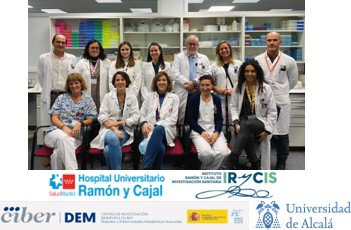Martínez MÁ, Quintero A, de Lope S, Insenser M, Fernández E, Escobar-Morreale HF, Luque-Ramírez M. Obesity and polycystic ovary syndrome influence on intestinal permeability at fasting, and modify the effect of diverse macronutrients on the gut barrier
FOOD RES INT. 2024
"Polycystic ovary syndrome and obesity have a negative impact on intestinal permeability". - Dr. Manuel Luque Ramírez
Summary:
In a cross-sectional study including non-hyperandrogenic control women, women with polycystic ovary syndrome (PCOS), and men who were submitted to glucose, lipid, and protein oral loads, we evaluated a panel of several circulating biomarkers related with intestinal permeability. Lipopolysaccharide-binding protein, zonulin family peptide, and glucagon-like peptide-2 responses were deregulated by the presence of obesity after glucose and lipid challenges. Obese subjects showed higher fasting intestinal permeability biomarkers levels than non-obese individuals, except for plasma soluble CD14. PCOS exacerbated the effect of obesity further increasing fasting glucagon-like peptide-2, lipopolysaccharide-binding protein, and succinate concentrations. We observed specific interactions of PCOS with obesity in the postprandial response of succinate, zonulin family peptide, and glucagon-like peptide-2. In short, obesity and PCOS modified the effect of diverse macronutrients on the gut barrier, and also influenced intestinal permeability at fasting, contributing to the morbidity of functional hyperandrogenism by inducing endotoxemia and subclinical chronic inflammation.
Why do you highlight this publication?
We here communicate novel data on intestinal permeability biomarkers in women with PCOS. The negative effect of obesity on intestinal permeability appears to be exacerbated in young women with PCOS. The observed responses may lead to increase intestinal permeability and endotoxemia, further contributing to the chronic systemic inflammation characteristic of these metabolic disorders. These findings improve current knowledge on metabolic diseases and their relationships with the gut microbiota-host cross talk and nutritional composition. This study also prompts further research addressing the effect of longer diets comprised of different macronutrients, including metagenomics and metabolomics approaches, since the potential findings derived from it may have implications in terms of nutritional therapeutics, particularly in metabolically compromised and high-risk individuals such obese subjects and women with PCOS.
Publication commented by:
Dr. Manuel Luque Ramírez
Diabetes, Obesity, and Reproductive Endocrinology Research Group-IRYCIS



